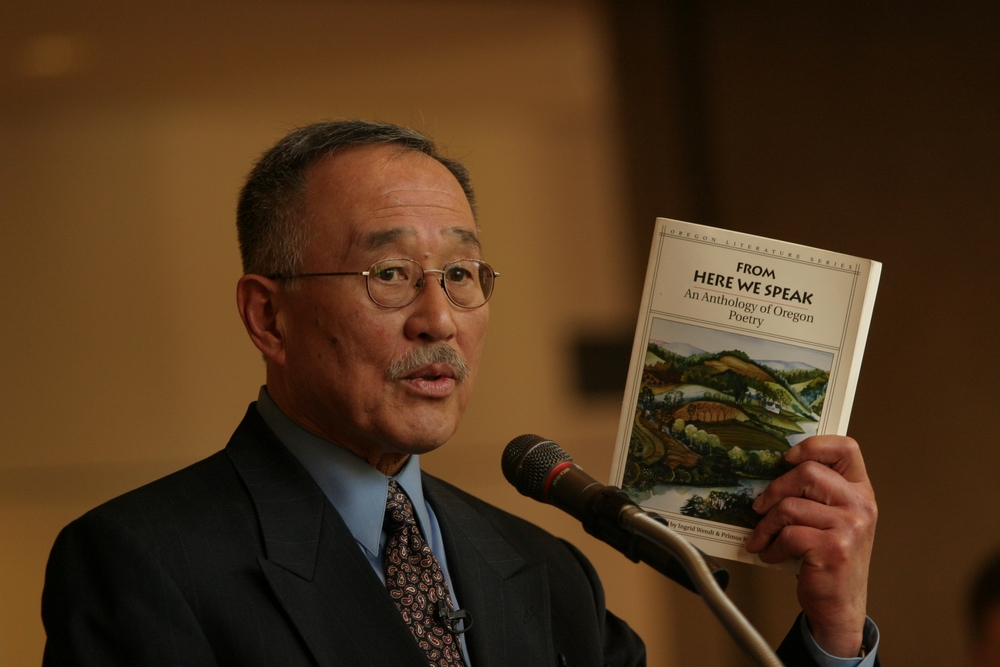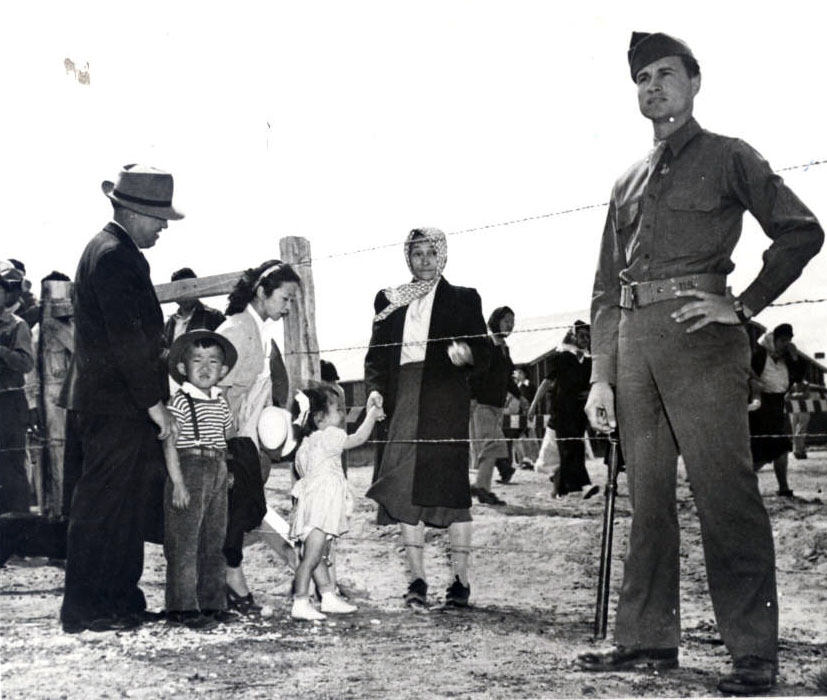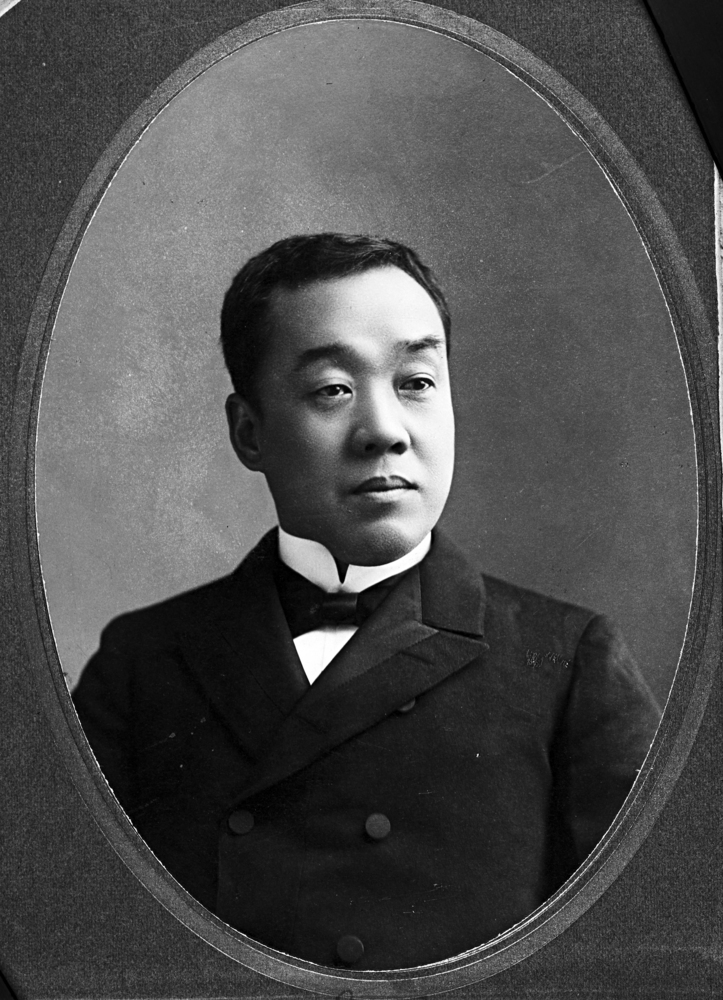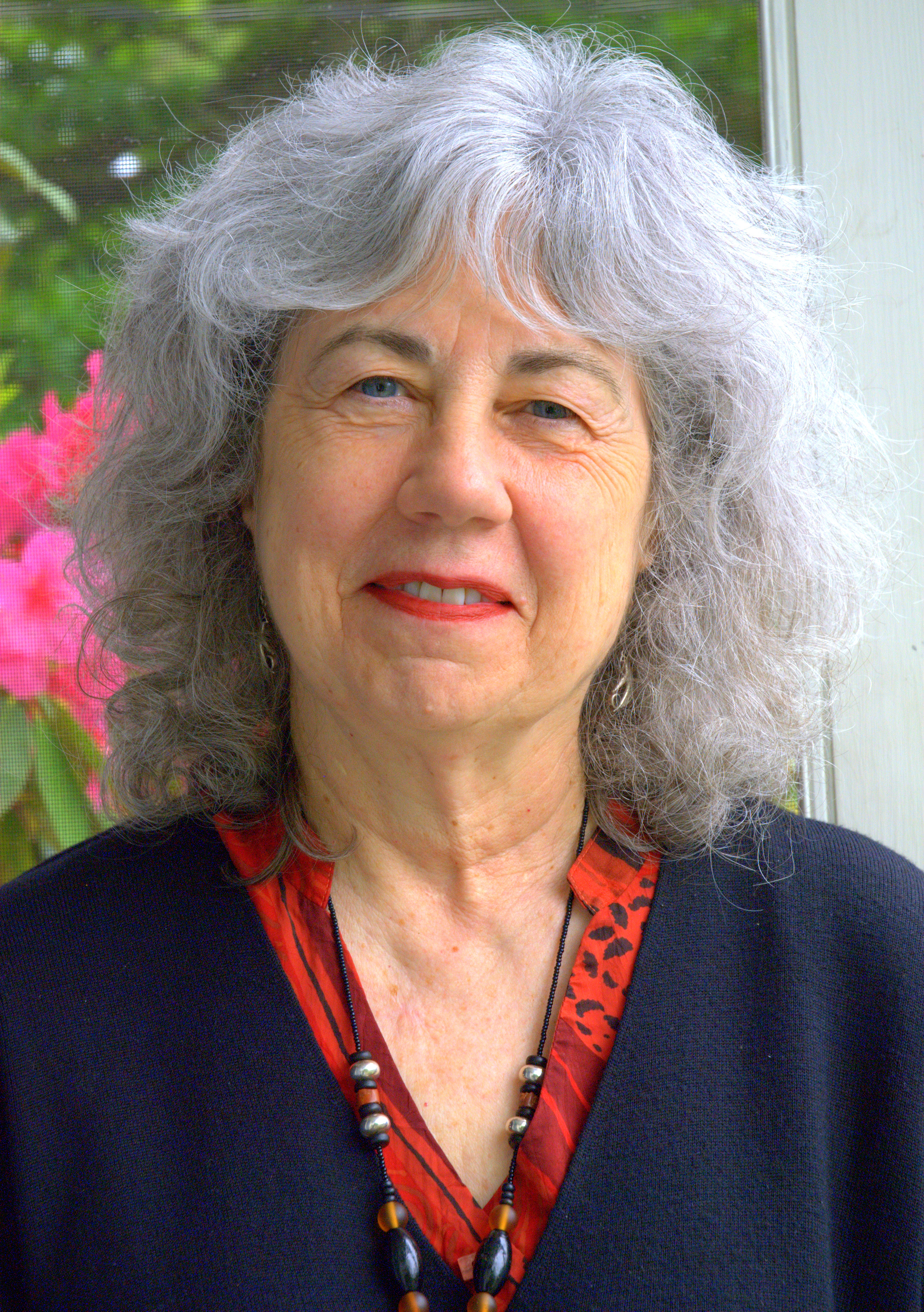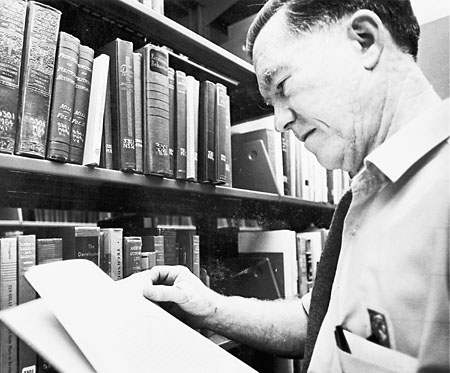Poet, writer, and educator, Lawson Fusao Inada is an emeritus professor of English at Southern Oregon University in Ashland. In February 2006, Governor Ted Kulongoski appointed him Oregon's fifth poet laureate, and Oregonians have come to know him through the dozens of appearances he has made throughout the state promoting the writing and reading of poetry.
Born in Fresno, California, in 1938, Inada is a third-generation Japanese American. His father was a dentist and his mother a teacher, and his maternal grandparents founded the Fresno Fish Market in 1912. In 1942, shortly after the United States entered World War II, Inada and his family were sent to incarceration camps with his parents and grandparents—first to the Fresno County Fairgrounds Assembly Center; then to a camp in Jerome, Arkansas, in the Mississippi Delta; and, finally, to Amache Camp in the Colorado desert.
After the war, the family returned to Fresno, where their home and business had been looked after by German and Italian friends. Inada attended school in the city's multi-ethnic West Side neighborhood and took writing classes from poet Philip Levine at Fresno State University. He loved jazz music and had ambitions as a jazz string bass player but decided instead to attend the University of Iowa Writers' Workshop, where he met his wife Janet. They are the parents of two grown sons, Miles and Lowell.
In 1971, Inada's Before the War: Poems as They Happened was the first volume of poetry by an Asian American published by a major publishing house. By then, Inada had earned a master of Fine Arts at the University of Oregon and had been teaching at Southern Oregon College (now Southern Oregon University) for five years. He is the author of two other collections of poetry: Legends from Camp (1992), which won the American Book Award, and Drawing the Line (1997), which won an Oregon Book Award.
Inada's poems show influences from his wartime incarceration in themes of identity, dislocation, and a longing for home. He has said of his work: "I try not to get bogged down in old wounds. I try to write from a plane of spiritual serenity. Understand, there is nothing wrong with anger. It's got its place. You can make a career out of it. I know people who have. But in the end, where does it get you? Compassion and understanding are what I've chosen."
Inada is coeditor of two ground-breaking anthologies of Chinese American and Japanese American literature and of Only What We Could Carry: The Japanese Internment Experience (2000), the definitive single-volume collection on the Japanese American incarceration camp experience. He has also been instrumental in returning to print work by little-known Japanese American writers, including John Okada and Toshio Mori. He was a major contributor to the catalog of the Japanese American National Museum's 1992 exhibition In This Great Land of Freedom: The Japanese Pioneers of Oregon, and his poetry is engraved in stones at the Japanese American Historical Plaza at Waterfront Park in Portland.
A deep connection to jazz, its rhythms and its repetition, is obvious in the spontaneous quality of Inada's work and in his tributes to jazz artists. He often performs his work with musical groups and soloists, including jazz masters Mal Waldron and Andrew Hill, and has worked with Portland jazz artists to create "Sentimental Journey," a concert of poetry and jazz. He says that his favorite form of publishing is live.
Inada is the subject of three videos: I Told You So (1974), What It Means to Be Free (2001), and Legends from Camp (2004), a computer-animated film by his son Miles. He is the narrator for the PBS documentaries Children of the Camps and Conscience and the Constitution.
The recipient of a Guggenheim Fellowship in 2004, Inada has served as Steinbeck chair for the National Steinbeck Center and has been a judge for the National Book Award in Poetry. He has been instrumental in creating multicultural curricula for high schools and colleges. He is a teacher, a community member, a husband, a father, a grandfather, and an artist. His readings and poems are pleasurable, instructive, and wise.
-
Lawson Inada with Oregon Poetry Anthology.
2009 Craig Walker Communications, Inc.
-
Cover to video "What It Means to be Free," by Lawson Inada.
Source www.poetryvideos.com
-
![]()
Lawson Inada, Poet Laureate of Oregon.
Photo by Michael Green; source www.oregonpoetlaureate.org
-
Lawson Inada (right) with poet William Stafford.
Source www.poetryvideos.com
Related Entries
-
![Japanese American Historical Plaza (Portland)]()
Japanese American Historical Plaza (Portland)
Using thirteen engraved stones of basalt and granite, the Japanese Amer…
-
![Japanese American Wartime Incarceration in Oregon]()
Japanese American Wartime Incarceration in Oregon
Masuo Yasui, together with many members of Hood River’s Japanese commun…
-
![Japanese Americans in Oregon]()
Japanese Americans in Oregon
Immigrants from the West Resting in the shade of the Gresham Pioneer C…
-
![Paulann Petersen (1942-)]()
Paulann Petersen (1942-)
Paulann Petersen, Oregon’s sixth Poet Laureate, is an award-winning poe…
-
![William Stafford (1914-1993)]()
William Stafford (1914-1993)
William Stafford, one of America’s most widely read poets, was born in …
Map This on the Oregon History WayFinder
The Oregon History Wayfinder is an interactive map that identifies significant places, people, and events in Oregon history.
Further Reading
Chan, Jeffrey Paul, Frank Chin, Shawn Wong and Lawson Fusao Inada, eds. The Big Aiiieeeee!: An Anthology of Chinese and Japanese American Literature. New York: Meridian, 1991.
Hongo, Garrett, Kaoru, Alan Chong Lau, and Lawson Fusao Inada, eds. The Buddha Bandits Down Highway 99. Mountain View: Buddhahead Press, 1978.
Inada, Lawson Fusao. Before the War; Poems as They Happened. New York: Morrow, 1971.
Lawson Fusao Inada: What It Means to Be Free video, TTTD Productions, 2001.
Three Northwest Poets: Drake, Inada, Lawder. Madison: Quixote Press, 1970.



